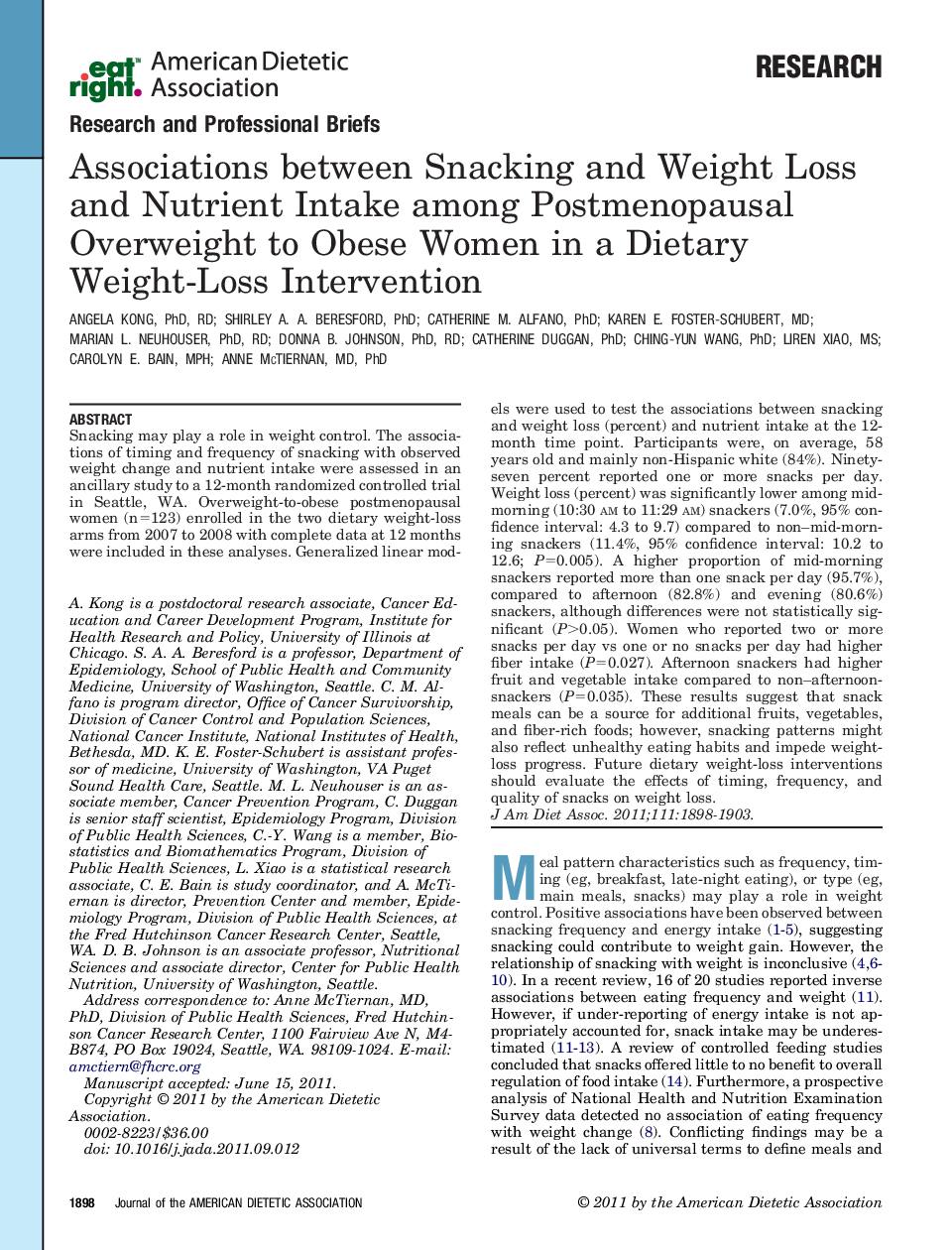| کد مقاله | کد نشریه | سال انتشار | مقاله انگلیسی | نسخه تمام متن |
|---|---|---|---|---|
| 2655133 | 1564101 | 2011 | 6 صفحه PDF | دانلود رایگان |

Snacking may play a role in weight control. The associations of timing and frequency of snacking with observed weight change and nutrient intake were assessed in an ancillary study to a 12-month randomized controlled trial in Seattle, WA. Overweight-to-obese postmenopausal women (n=123) enrolled in the two dietary weight-loss arms from 2007 to 2008 with complete data at 12 months were included in these analyses. Generalized linear models were used to test the associations between snacking and weight loss (percent) and nutrient intake at the 12-month time point. Participants were, on average, 58 years old and mainly non-Hispanic white (84%). Ninety-seven percent reported one or more snacks per day. Weight loss (percent) was significantly lower among mid-morning (10:30 am to 11:29 am) snackers (7.0%, 95% confidence interval: 4.3 to 9.7) compared to non–mid-morning snackers (11.4%, 95% confidence interval: 10.2 to 12.6; P=0.005). A higher proportion of mid-morning snackers reported more than one snack per day (95.7%), compared to afternoon (82.8%) and evening (80.6%) snackers, although differences were not statistically significant (P>0.05). Women who reported two or more snacks per day vs one or no snacks per day had higher fiber intake (P=0.027). Afternoon snackers had higher fruit and vegetable intake compared to non–afternoon-snackers (P=0.035). These results suggest that snack meals can be a source for additional fruits, vegetables, and fiber-rich foods; however, snacking patterns might also reflect unhealthy eating habits and impede weight-loss progress. Future dietary weight-loss interventions should evaluate the effects of timing, frequency, and quality of snacks on weight loss.
Journal: Journal of the American Dietetic Association - Volume 111, Issue 12, December 2011, Pages 1898–1903